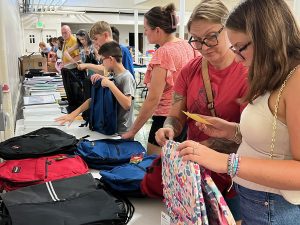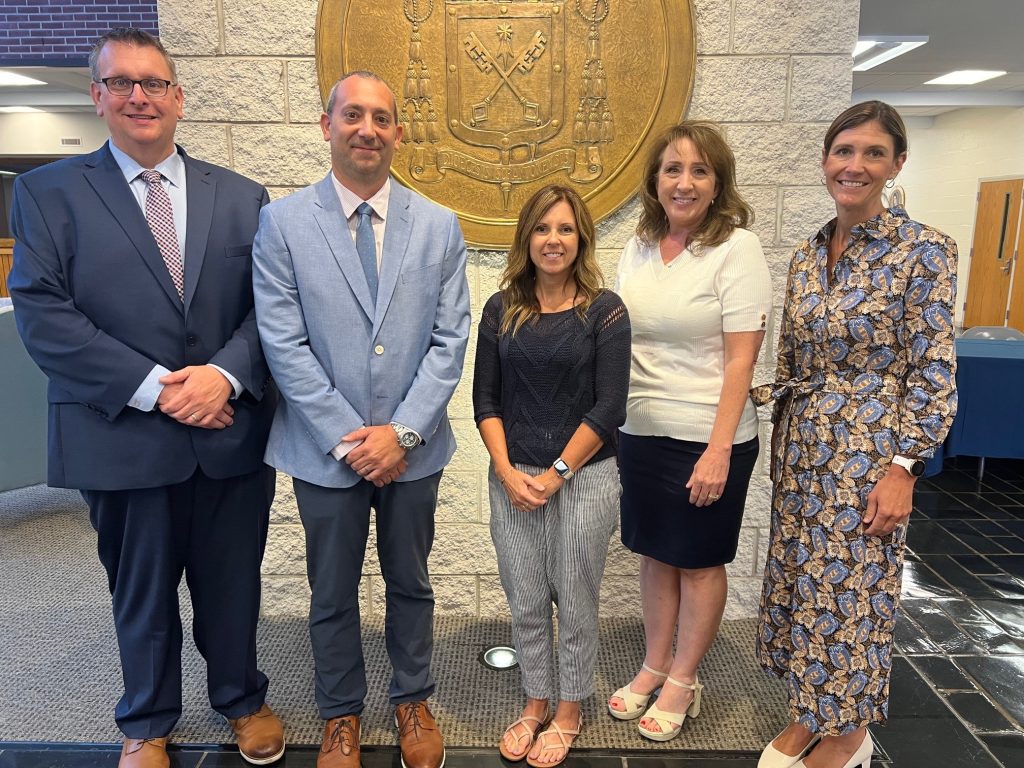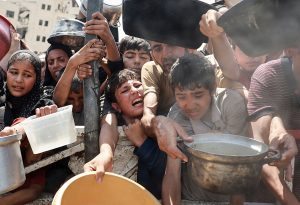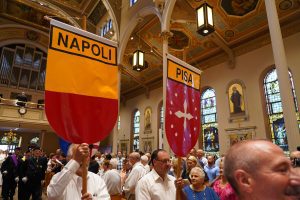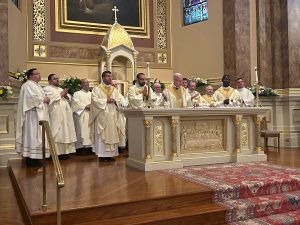(OSV News) – In a well-circulated photo, Blessed Pier Giorgio Frassati appears to pause during a mountain hike and leans against his walking stick, smoking a pipe. His posture is relaxed and confident.
For many, the visual takeaway is that Frassati is someone they could imagine among their friends, a soon-to-be saint somehow like them.
“The No. 1 thing I get with Pier Giorgio is relatability,” said Christine Wohar, FrassatiUSA executive director. “He shows us how we can … be holy in the normalcy of our lives.”
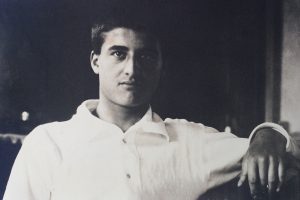
He was attractive, manly, rugged, humorous and athletic, she noted. He was devoted to the Eucharist and Mary and time spent in adoration and praying the rosary. He came from a wealthy family, but was also committed to personal charity, as well as larger social causes and faith-based activism.
But, Wohar said, he also had relatable challenges: His parents’ marriage was on the verge of legal separation, he struggled to balance his studies with other commitments, he wrestled with whether to date a girl he loved, and he was misunderstood by family members.
Pope Leo XIV plans to canonize the Turin native, who died in 1925, alongside fellow Italian Blessed Carlo Acutis Sept. 7. The date is a month after the one originally indicated — but not solidified — in November 2024 by the late Pope Francis, who said that Frassati would be canonized during the Jubilee of Young People July 28-Aug. 3.
Wohar had planned a group pilgrimage for that celebration, and when the date shifted, it was too difficult to reschedule. So she and others spent late July and early August visiting Italy’s Frassati-related sites before attending Jubilee events in Rome. There they venerated Frassati’s relics in the Basilica of Santa Maria sopra Minerva, where his body had been temporarily relocated from Turin for the Jubilee celebration.
On that casket was inscribed, in his script, a phrase that many of his devotees have made their personal adage, stacked with spiritual meaning: “Verso l’alto” (“To the heights”). He wrote the phrase on another photo that had been taken of him mountaineering, gripping a rockface while looking towards the summit. It would be his last climb.
Pier Giorgio Michelangelo Frassati was born April 6, 1901, in Turin to Adelaide Ametis, a painter, and Alfredo Frassati, a newspaper businessman and politician who served as an Italian senator and ambassador to Germany. Even as a child, Pier Giorgio was engaged in Catholic groups and sought to receive daily Communion.
Fortified by a robust prayer life rooted in Marian devotion and the Eucharist, at age 17 he joined the Society of St. Vincent de Paul to care for the poor and the wounded soldiers returning home from World War I. He was known for giving money and his possessions to people in poverty, and even skipped vacations to the family’s summer home, saying, “If everybody leaves Turin, who will take care of the poor?”
His concern for marginalized and downtrodden people would persist throughout his short life. It influenced his decision to study mining engineering at Royal Polytechnic University of Turin, with the aim of ministering among the miners. Although he was smart, his studies suffered because of the amount of time he dedicated to helping the poor and political activism. In 1919, he joined Catholic Action, which promoted the church’s social teaching, especially as articulated in the 1891 encyclical “Rerum Novarum,” promulgated by Pope Leo XIII.
Two years later, he helped to organize in Ravenna the first Pax Romana conference, which aimed to unify Catholic university students to work for worldwide peace. In 1922, he joined the Lay Dominicans, also known as the Third Order of St. Dominic, choosing the name “Girolamo” after the fiery 15th-century Dominican preacher in Florence, Girolamo Savonarola.
Throughout his young adulthood, he was an avid outdoorsman and enjoyed skiing and mountaineering, art and music, and poetry and theater. He regularly gathered together his friends and was known to be a practical joker, shortening his friends’ bedsheets and waking them with trumpet blasts, ultimately earning the nickname “Fracassi,” as in “fracas” — a noisy disturbance.
“He knew how to have fun,” Wohar said. “He was an explosion of joy. He was the life of the party.”
But at church, he was reverent and composed, “all business with the Lord,” she added.
“He made religion look fun and attractive,” Wohar said. “Stories are told about how he would make wagers, and if he won that, his friends would have to go to adoration or Mass or pray the rosary or something. He believed that the apostolate of persuasion was the most beautiful and most necessary to help your friends find the ways of God.”
Frassati also engaged in actual fistfights for his faith-based political convictions — on more than one occasion — in scuffles with Communists, Fascists and crowd enforcement during activist rallies.
Amid his studies, social life and political activism, Frassati continued to take seriously his spiritual life, charitable works and evangelistic efforts, wasting no opportunity to invite his friends to join him in prayer, Scripture reading or at Mass.
An often overlooked aspect of Frassati was the attention he gave daily to death, Wohar said. He committed to making some preparation daily for his own death, saying that he was “ambitious” to meet God, even as his judge.
“He was mindful of his eternal future, and that really shaped how he lived his present,” she said. “He wrote beautiful letters about this. He visited one day somebody who had just died in the hospital, and he said, ‘This is what’s going to happen to me in just a short period of time,’ which was almost prophetic.”
In late June 1925, Frassati began to experience symptoms of polio, likely contracted while visiting Turin’s sick and poor. However, his grandmother was also dying at his home, so he downplayed his illness and focused on her, as did his family. She died July 3.
As his suffering worsened, his mind was also on his friends and the poor. He implored his sister, Luciana, to deliver medicine and other promised items to those in need whom he regularly visited. She recounted this in her book “My Brother Pier Giorgio: His Last Days.”
Pier Giorgio Frassati died July 4, 1925, at age 24, and his funeral was attended by hundreds of his city’s poor, revealing to many, especially his family members, the fullness of his charity. He was initially buried in the family crypt in the nearby city of Pollone, but his body was moved to the Cathedral of St. John the Baptist in Turin after his beatification in 1990.
At Frassati’s beatification, St. John Paul II described him as a “man of the beatitudes.”
“In him faith and daily events are harmoniously fused, so that adherence to the Gospel is translated into loving care for the poor and the needy in a continual crescendo until the very last days of the sickness which led to his death,” the pope said.
“His love for beauty and art, his passion for sports and mountains, his attention to society’s problems did not inhibit his constant relationship with the Absolute,” he continued. “Entirely immersed in the mystery of God and totally dedicated to the constant service of his neighbor: thus we can sum up his earthly life!”
While a cause for Frassati’s canonization opened shortly after his death, it stalled for a time. Wohar said she believes that his canonization this year — a century after his death — is part of God’s plan.
“The Lord, in his wisdom, knew we needed a Pier Giorgio Frassati, a St. Frassati, for a time like we live in now,” she said.
“If he had been canonized, say, in the 1940s, we might never even have him on our radar,” she continued. “He would have maybe gone into obscurity as one of the many, many, many Italian saints. The fact that he is being canonized in this Jubilee Year of hope, when we need hope in our culture, I think he presents a picture of hope for young adults — for everybody, but particularly for that age range.”
She added, “It’s God’s perfect timing.”

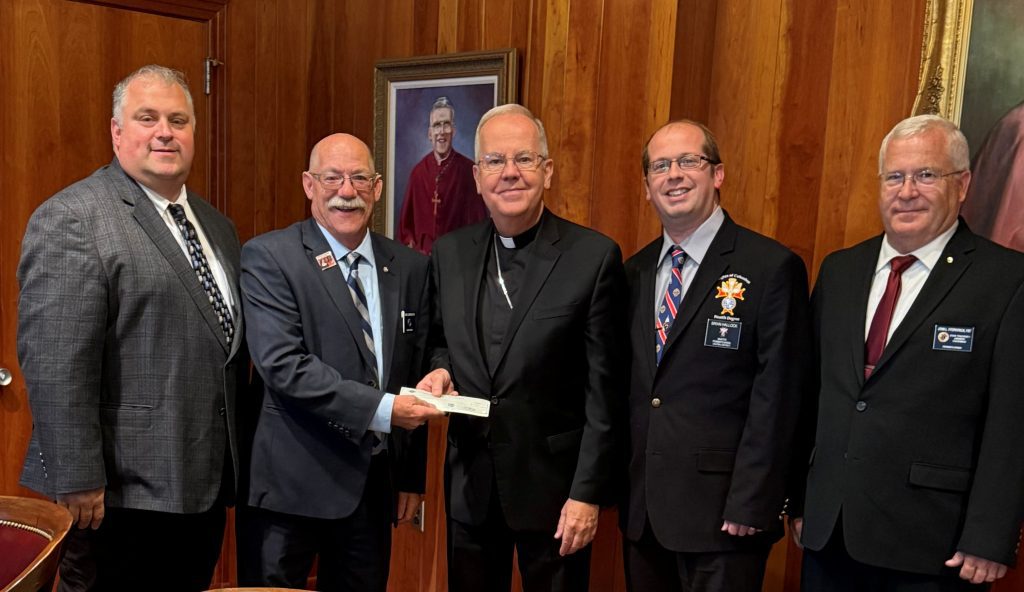
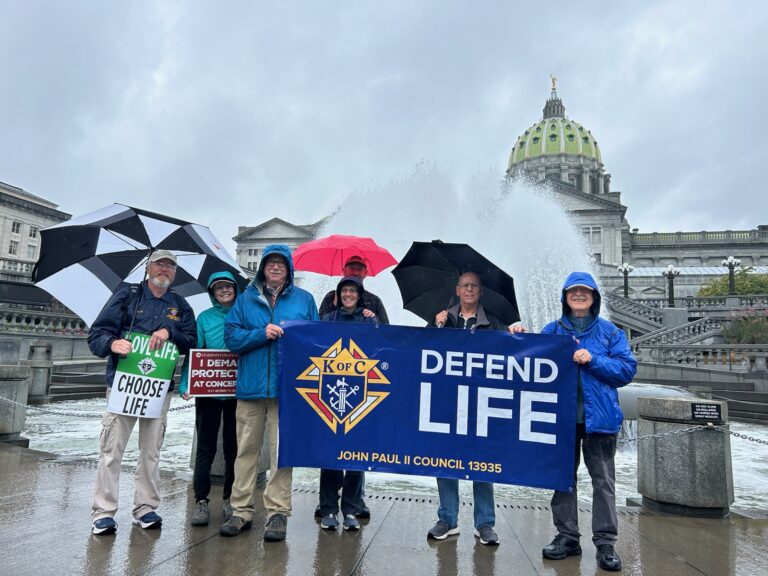 Knights of Columbus John Paul II Council 13935 which serves St Patrick’s and St Joseph’s joint parishes is dedicated to the gospel of life.
Knights of Columbus John Paul II Council 13935 which serves St Patrick’s and St Joseph’s joint parishes is dedicated to the gospel of life. 
